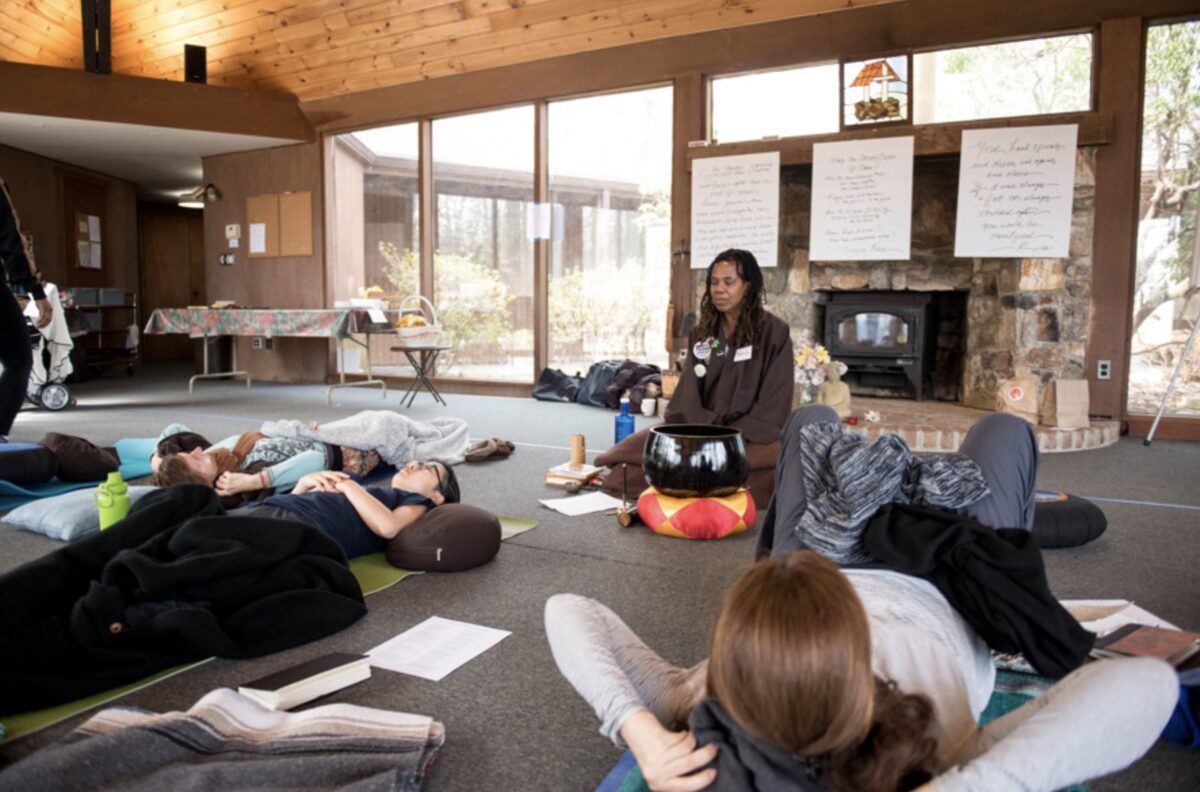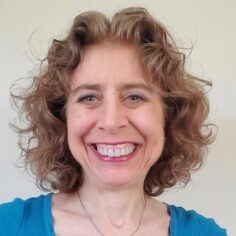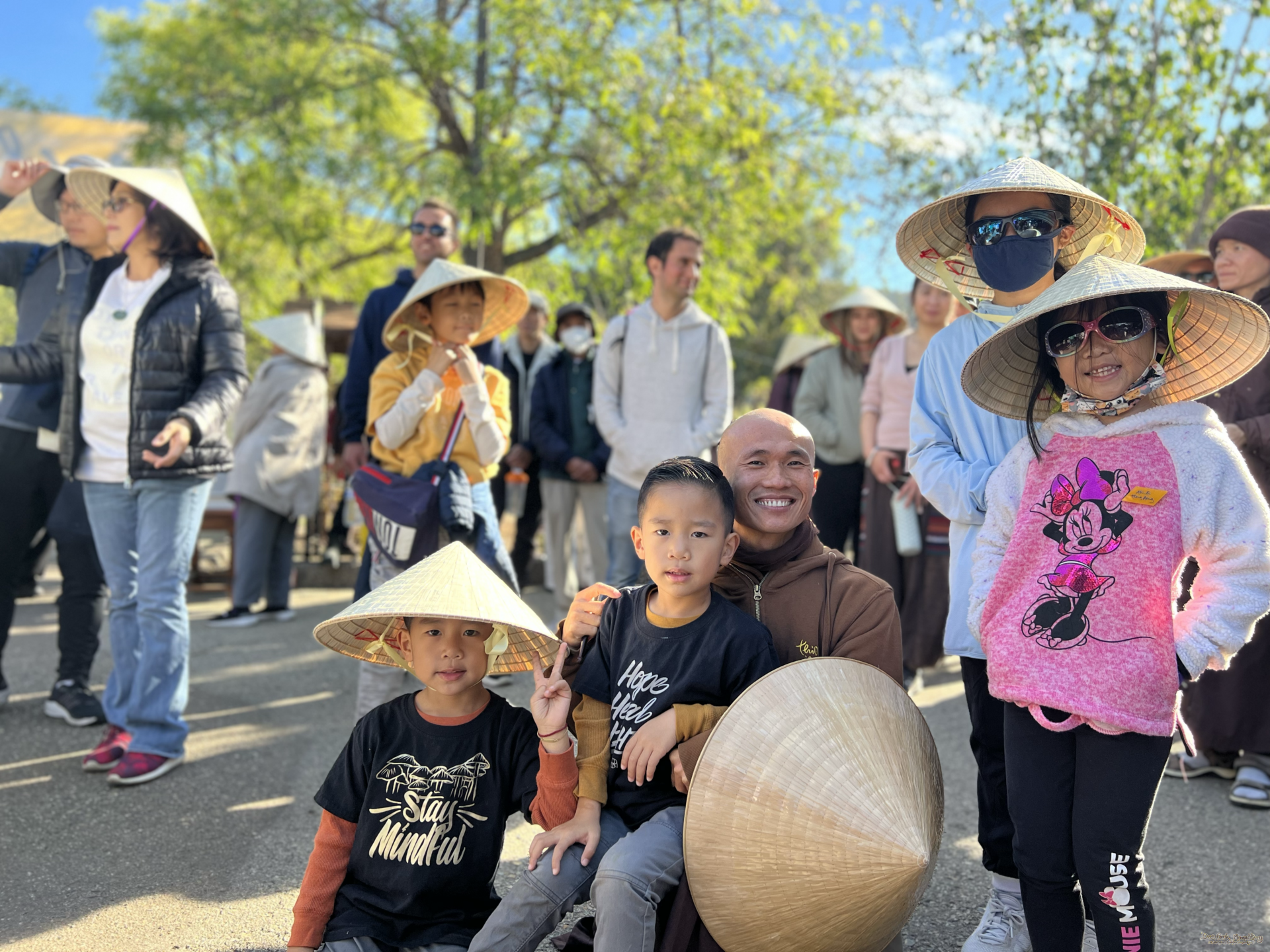and Why That’s a Relief
By Laura Sturza on
I always thought the term disabled referred to a person severely or obviously hampered by their condition. I certainly never thought of myself as disabled…that is, until I attended a meditation retreat and discovered my own invisible disabilities—chronic migraines and severe anxiety. I don’t mean the occasional bad headache or the kind of worries one has on the first day of a job.
and Why That’s a Relief
By Laura Sturza on
I always thought the term disabled referred to a person severely or obviously hampered by their condition. I certainly never thought of myself as disabled…that is, until I attended a meditation retreat and discovered my own invisible disabilities—chronic migraines and severe anxiety. I don’t mean the occasional bad headache or the kind of worries one has on the first day of a job. What I experience are ongoing conditions that have long kept me from living life to its fullest.
The meditation retreat where I recognized my own disabilities was presented virtually by the Opening Heart Mindfulness Community (OHMC), a Washington, D.C.-based Sangha in the tradition of Thích Nhất Hạnh. Like many organizations, OHMC has given a lot of thought to questions of justice and inclusivity. The retreat’s theme was Love Speaks Through You: Practices to Build a Resilient, Peaceful Heart and Socially Just World.
In keeping with this theme, the facilitators offered an option to join “affinity groups” comprised of a subset of attendees with a shared interest, affiliation, or goal. One such group was for anyone who identified as disabled, which the facilitator said included those with chronic health conditions. Although I qualified to join, initially all I could hear were my “I’m not disabled” thoughts. Then lead facilitator Valerie Brown skillfully guided us to pay close attention to our feelings, breath, and bodies.

Sitting quietly, relaxing my body, and slowing my breath allowed me to explore my own health challenges and to realize how much and for how long I had struggled with conditions no one could see. My perception began to change as I saw how I had denied the physical and emotional suffering that were regular features of my life. While meditation, yoga, and other interventions had eased my symptoms, they hadn’t made the pain disappear entirely. Memories of one of my more significant migraines surfaced: my then eighty-three-year-old mother had flown across the country to visit me in Los Angeles, but instead of taking her on a tour of the city I lay in the dark of my bedroom for thirty-six hours, hoping the nausea would stop and crying over the missed chance to fête my mom. I had to call on friends to show her around, something I had been looking forward to doing myself for weeks.
On the anxiety front, worries about my mom, now in her nineties, spiked considerably during COVID-19 lockdowns, even with my yoga and meditation practices. A panic attack landed me in urgent care with a racing heart, spiraling thoughts, and vertigo that made it hard to walk. Luckily, I got through it, and my mom survived the eighteen-month lockdown.
After the meditation retreat ended, I felt prompted to research what I now understand are “hidden disabilities,” which include chronic pain, mental illness, learning differences, and other conditions highlighted by The Invisible Disability Project. I came to appreciate that those of us navigating these health challenges, though we might not use visible assistive devices such as wheelchairs or hearing aids, need accommodations nonetheless.
While I never would have guessed that giving myself the disability label would be liberating, it is. In part, that’s a function of knowing I’m not alone. I’m one of sixty-one million disabled Americans—one person in four, according to the Centers for Disease Control and Prevention.
Why does membership in the community of people with disabilities have its benefits? For starters, I cut myself more slack. I have spent years keeping up the facade of ableism. If I could pass as abled and perform at a high-functioning level, why did I need to acknowledge my limitations, let alone broadcast them? And yet, as I have watched athletes like Naomi Osaka and Simone Biles discuss their mental health struggles, I have become more willing to talk about my own.
It has also meant that some of my relationships have shifted in positive ways. I have started to tell people when I am having a migraine or experiencing anxiety and to ask for their understanding. “I may not be able to participate or to communicate as easily. I may need to find a quiet place to rest,” I’ve said. Each time I’ve told someone, they have accommodated my needs.
Even so, I realize that not every person will respond with kindness. A friend who has debilitating bouts of back pain told me some of her friends stopped inviting her to activities after her condition forced her to cancel multiple dates. And while workplace discrimination is prohibited by the Equal Employment Opportunity Commission, she has also encountered subtle forms of it in the abrupt ways coworkers have responded when learning about her challenges.
Knowing not everyone will be supportive means I must thoughtfully choose who to tell. That won’t entirely protect me from people who make assumptions about my disabilities. Such encounters can give me the chance to employ my mindfulness practice and to offer compassion to those who are unable to respond with a more generous heart.
As a newly self-identified disabled person, I have also reconsidered the Buddhist principles of the Five Remembrances, particularly the third—I am of the nature to get sick, I cannot avoid sickness. This idea has taken on new relevance as I move toward acceptance of my disabilities. I do not need to dwell on my conditions, nor do I need to underplay them. With this awareness, my fears about illness have begun to soften.
Meditation and mindfulness practices have taught me compassion for those who may be suffering from conditions that are visible and invisible. Buddhist Nun Pema Chödrön outlines a means for building empathy with the practice of tonglen: “In tonglen practice, instead of running from pain and discomfort, we acknowledge them and own them fully. Instead of dwelling on our own problems, we put ourselves in other people’s shoes and appreciate our shared humanity.”
In claiming my status as a disabled person, I have experienced greater awareness of the suffering and resilience of all who live with a disability. Doing so has also helped me to be more appreciative of members of the abled community who work towards being inclusive. I have even become more accepting of those who don’t yet know how to do so. I have been excited to learn how the disability justice community has taken on the essential work of promoting this cause through celebrations like Disability Pride Month each July. Members of OHMC have been exploring this work by creating a series of seminars called Making Visible, which includes webinars on Disability Justice explored through mindfulness practice.
When my conditions flare-up, sometimes I am inspired to practice tonglen. In these moments, I think of others who may be contemplating whether to identify as disabled. I hope that, like me, they may find that doing so brings them greater peace, acceptance of conditions as they are, and the chance to more readily contribute to building a socially just world.


